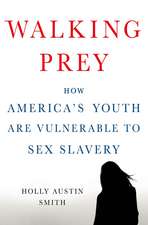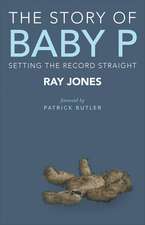Protecting Civilians During Violent Conflict: Theoretical and Practical Issues for the 21st Century: Military and Defence Ethics
Autor Igor Primoratz Editat de David W. Lovellen Limba Engleză Paperback – 19 oct 2016
| Toate formatele și edițiile | Preț | Express |
|---|---|---|
| Paperback (1) | 469.34 lei 6-8 săpt. | |
| Taylor & Francis – 19 oct 2016 | 469.34 lei 6-8 săpt. | |
| Hardback (1) | 1054.71 lei 6-8 săpt. | |
| Taylor & Francis – 28 apr 2012 | 1054.71 lei 6-8 săpt. |
Preț: 469.34 lei
Nou
Puncte Express: 704
Preț estimativ în valută:
89.82€ • 93.53$ • 75.91£
89.82€ • 93.53$ • 75.91£
Carte tipărită la comandă
Livrare economică 10-24 martie
Preluare comenzi: 021 569.72.76
Specificații
ISBN-13: 9781138254565
ISBN-10: 1138254568
Pagini: 368
Dimensiuni: 156 x 234 mm
Greutate: 0.45 kg
Ediția:1
Editura: Taylor & Francis
Colecția Routledge
Seria Military and Defence Ethics
Locul publicării:Oxford, United Kingdom
ISBN-10: 1138254568
Pagini: 368
Dimensiuni: 156 x 234 mm
Greutate: 0.45 kg
Ediția:1
Editura: Taylor & Francis
Colecția Routledge
Seria Military and Defence Ethics
Locul publicării:Oxford, United Kingdom
Cuprins
Contents: Protecting civilians during violent conflict: an issue in context, David W. Lovell; Are attacks on civilians always wrong?, Stephen Nathanson; Civilian immunity as an almost absolute moral rule, Igor Primoratz; Collateral damage: intending evil and doing evil, Dean Cocking; The protection of civilians from violence and the effects of attacks in international humanitarian law, Hitoshi Nasu; Discriminate warfare: the military necessity-humanity dialectic of international humanitarian law, Michael N. Schmitt; Who is protected under international humanitarian law? Finding a definition of 'direct participation in hostilities', Helen Durham and Eve Massingham; Protecting civilians in armed conflict through rules of engagement, Rob McLaughlin; Educating for ethical behaviour? Preparing military leaders for ethical challenges, David W. Lovell; First do no harm: refugee law as a response to armed conflict, Penelope Mathew; Private military and security companies and the 'civilianization' of war, Andrew Alexandra; Remote killing and drive-by wars, David Whetham; Discrimination and non-lethal weapons: issues for the future military, Stephen Coleman; Surviving in a war zone: the problem of civilian casualties in Afghanistan, William Maley; The protection of civilians during Israeli-Hamas conflict: the Goldstone Report, Richard D. Rosen; An assessment of the Gaza Report's contribution to the development of international humanitarian law, Susan Breau; References; Index.
Notă biografică
David Lovell is Head of the School of Humanities and Social Sciences, at the University of New South Wales at the Australian Defence Force Academy , Australia and Igor Primoratz is Professorial Fellow at the Centre for Applied Philosophy and Public Ethics, Charles Sturt University, Canberra, and Professor Emeritus of Philosophy at The Hebrew University, Jerusalem
Recenzii
'As unconventional and intra-state conflict situations abound, this timely volume addresses the burgeoning and complex ethical problems posed by the risk of civilian casualties. If the moral claims of non-combatants are not absolute, how strong are they? Readers of this volume will gain a clear picture of the values at stake and the special difficulties of implementing them in the twenty-first century.' John Kleinig, John Jay College of Criminal Justice, USA
Descriere
Eloquently combining theory and practice, leading scholars from the fields of political science, law and philosophy have been brought together to provide an essential overview of some of the major ethical, legal and political issues with regard to protecting civilians caught up in modern inter- and intra-state conflicts. In doing so, they examine what is being done, and what can be done, to make soldiers more aware of their responsibilities in this area under international law and the ethics of war, and more able to respond appropriately to the challenges that will confront them in the field.




























